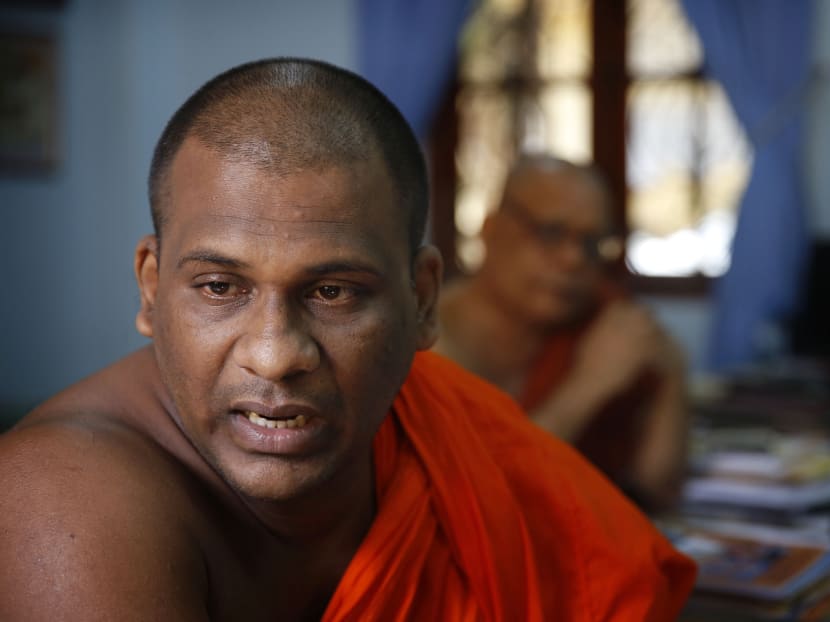Hardline monks rally Sri Lanka against Muslim minority
COLOMBO - With a bloody civil war over and a cautious peace at hand, a group of hardline Buddhist monks is rallying Sri Lankans against what they say is a pernicious threat: Muslims.

Galagoda Atte Gnanasara, the 37-year-old Buddhist monk who founded the Bodu Bala Sena (BBS) group, or Buddhist Power Force, speaks to the Associated Press. Photo: AP
COLOMBO - With a bloody civil war over and a cautious peace at hand, a group of hardline Buddhist monks is rallying Sri Lankans against what they say is a pernicious threat: Muslims.
In just over a year, the saffron-swathed monks of Bodu Bala Sena - or Buddhist Power Force - have amassed a huge following, drawing thousands of fist-pumping followers who rail against the country’s Muslim minority.
Buddhists have attacked dozens of mosques and called for boycotts on Muslim-owned businesses and bans on headscarves and halal foods. At boisterous rallies, monks claim Muslims are out to recruit children, marry Buddhist women and divide the country.
“This is a Buddhist nation, so why are they trying to call it a multicultural society?” said Mr Galagoda Atte Gnanasara, the 37-year-old pulpit-pounding monk who co-founded the group in 2012. “Not everyone can live under the umbrella of a Buddhist culture.”
There have been few if any physical attacks on people, unlike in Myanmar, where Buddhist monks helped incite communal violence in 2012 and last year and even stood watch as Buddhist mobs slaughtered Rohingya Muslims. But many Sri Lankans and human rights workers are alarmed, saying the monks are creating communal divisions and giving Buddhism a bad name.
Nearly all of the dozen critics of Bodu Bala Sena interviewed for this story declined to speak on the record, fearing reprisals.
The Sri Lankan government only rarely steps in to defend or protect Muslims, who make up roughly 10 per cent of the 20 million people on this Indian Ocean island.
Many see the silence as tacit approval, but Media Minister Keheliya Rambukwella said it is intended to encourage community members to work out their own problems. He said the anti-Muslim rumblings are “minor agitations that are normal in any multicultural society”.
“If things get more serious, we will take action,” he said. “These kinds of things can ruin a nation, we are aware of that.”
In September 2011, Buddhists reportedly smashed a 300-year-old Islamic Sufi shrine to rubble in the ancient city of Anuradhapura, a UNESCO world heritage site. Police have denied that the incident happened, but photographs taken by locals show at least a dozen officers watching as young men hammer the shrine to pieces while a monk holds a burning green Islamic flag.
In April 2012, a 2,000-strong Sinhalese mob including monks ransacked Jumma Mosque in the north-central city of Dambulla as police looked on. The government later ordered the removal of the decades-old mosque, saying its location within a sacred Buddhist area was an affront.
In March last year, police watched as red-robed monks led a hollering crowd in trashing a Muslim-owned clothing store.
The United States Embassy spoke out after a stone-hurling mob attacked a suburban Colombo mosque in August, calling it “particularly troubling in light of a number of recent attacks against the Muslim community in Sri Lanka”.
Muslims say they are also the targets of ludicrous conspiracy theories, including rumours that they spit three times in any dish before serving it to a non-Muslim, or that Muslim shops sell women’s undergarments tainted with chemicals that cause infertility. AP









